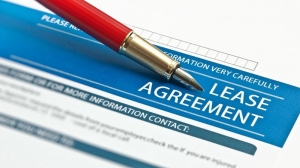Buying a home is a major milestone and a significant financial commitment. For many people, owning property in another country can be both exciting and intimidating.
Whether you are moving abroad permanently, buying a vacation home, or investing in real estate, the process for non-residents is often more complicated than it is for local buyers.
Different countries have different rules, taxes, and paperwork requirements. Understanding these factors ahead of time will help you avoid costly mistakes and make better decisions.
This article will guide you through the key points to consider when buying a home as a non-resident, from understanding the market to handling the legal side of the purchase.
Understand the Local Market and Rules
Before looking at homes, it's important to understand how the real estate market works in the country where you want to buy. Prices, demand, and laws can be very different from what you're used to.
Some countries have restrictions on foreigners owning property. These rules vary a lot. For example, some places only allow non-residents to buy certain types of properties or in specific areas. Other countries have no restrictions at all.
Check the tax rules too. Owning a property might mean paying taxes on the purchase, property taxes every year, or taxes on rental income if you plan to rent it out. Understanding these costs upfront can help you avoid surprises.
It's a good idea to work with a local real estate agent who knows the market well. They can guide you through the legal process and help find properties that fit your budget and needs.
Get Your Finances in Order
Buying property usually means a large upfront cost. You'll need a deposit, closing costs, and money for inspections or repairs. If you don't have cash ready, you might need a mortgage.
Getting a mortgage as a non-resident can be challenging. Banks often require proof of income, credit history, and a local bank account. This is why having access to banking services is important.
If you want to open a bank account as a non-resident, some banks offer special accounts designed for foreign buyers. These accounts can make it easier to handle payments, receive mortgage funds, and manage expenses related to the property.
Be sure to talk with your bank or mortgage provider early in the process. They can explain what documents you need and the timeline for approval.
Also, keep in mind that exchange rates can affect your buying power. If you're converting money from another currency, try to plan your payments when the rates are favorable.
Know the Legal Process
Buying property involves paperwork and legal steps. As a non-resident, it's important to know how to protect yourself.
Start by hiring a local lawyer who specializes in real estate. They will review contracts, check that the property title is clear, and make sure there are no unpaid debts or liens on the property.
In many countries, the process includes signing a preliminary agreement and paying a deposit. Then, there might be a period for inspections and final checks before the sale is completed.
Your lawyer can also help with the transfer of funds. This is another reason having a local bank account helps. Moving large amounts of money internationally can be complicated without it.
Don't skip any inspections or legal checks. Problems like unpaid taxes or unclear ownership can cause major headaches later on.
Plan for Additional Costs
Buying a home is more than just the sale price. There are often extra costs you need to budget for.
These can include:
- Property taxes
- Maintenance and repairs
- Homeowner's insurance
- Utility setup fees
- Fees for the real estate agent, lawyer, and notary
If you plan to rent the home, you might also need to pay property management fees.
Make sure you understand all these costs before making an offer. It's better to be prepared than surprised by unexpected bills.
Consider How You Will Use the Property
Think about why you're buying. Are you planning to live in the home part-time? Will it be a rental investment? Or a vacation house?
This affects what type of property you choose and where it should be located. For example, if it's a rental, choose an area with strong demand from tenants.
If you plan to visit often, think about how easy it is to travel to the property and manage it from afar.
If you don't plan to visit regularly, you might want to hire a property manager who can look after things for you.
Final Thoughts
Buying a home in a foreign country is a big step, but it can also open up many new opportunities. It requires careful planning, research, and patience.
Non-residents often face extra hurdles, from dealing with different laws to managing finances across borders. However, with the right information and professional support, you can successfully navigate this process.
Take your time to understand the market and legal requirements. Make sure your finances are in order, including setting up any necessary local bank accounts.
Work with trusted real estate agents and lawyers who have experience with non-resident buyers. Always double-check paperwork and plan for additional costs.
By preparing well and asking questions, you can avoid common mistakes and make confident choices. Owning property abroad can give you flexibility, potential investment returns, and a place to call your own. With patience and the right approach, this dream can become a reality.






